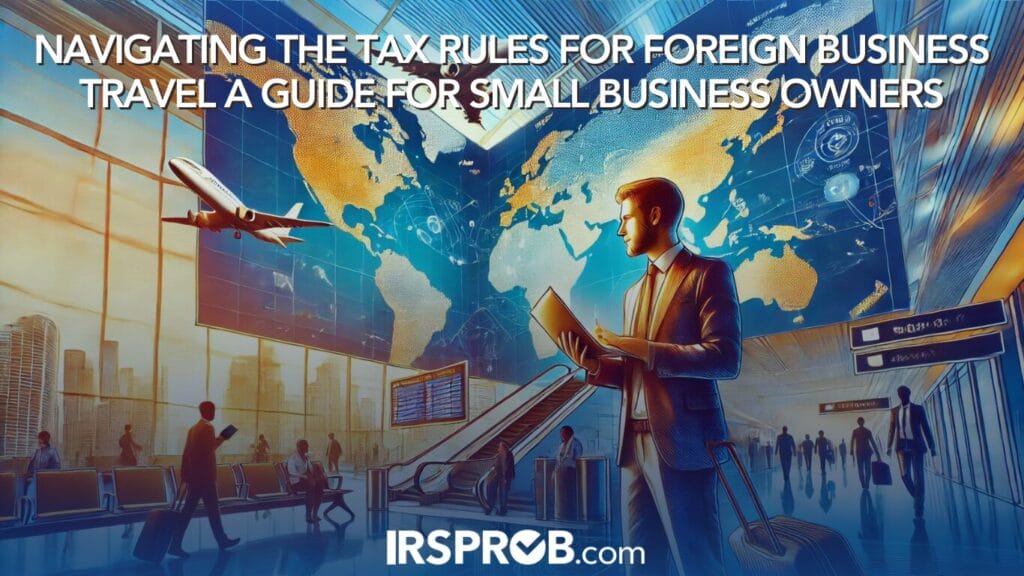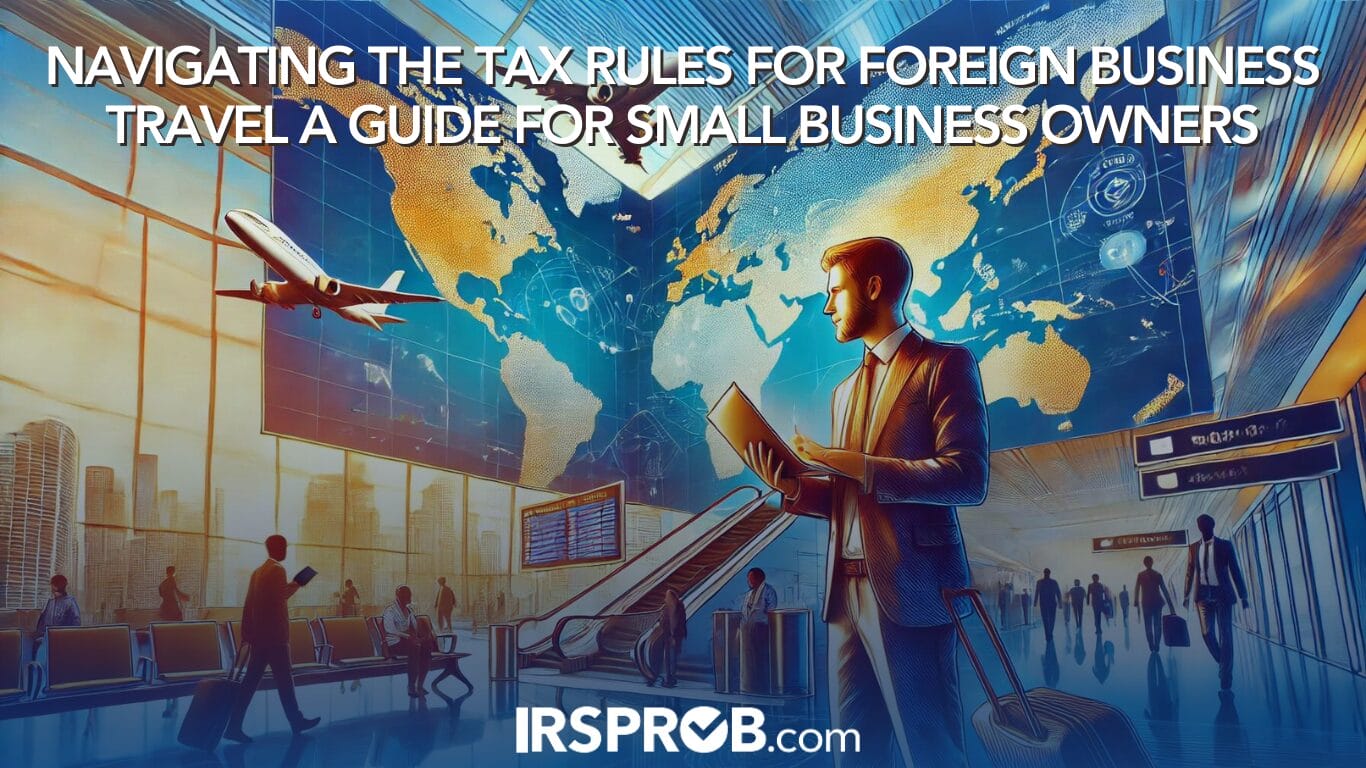
Expanding your business beyond domestic borders can be an exciting and lucrative venture. As small business owners increasingly dip their toes into the global market, understanding the tax implications of foreign business travel becomes essential. By mastering the tax rules surrounding these trips, you can maximize your deductions and avoid potential pitfalls.
Understanding the Basics
The fundamental tax rules for foreign business travel are similar to those for domestic travel. If the primary purpose of your trip is business-related, you can deduct several expenses:
- Lodging: Costs associated with staying away from home for business are deductible.
- Meals: You can deduct 50% of your meal expenses while traveling for business.
- Airfare: The cost of your round-trip airfare is fully deductible as long as business is the primary purpose of the trip.
However, foreign travel introduces additional complexities, especially if your trip combines business with personal leisure. The IRS has specific rules to determine how much of your travel expenses are deductible when a portion of your trip is for non-business purposes.
Key Tests for Full Deduction
To fully deduct your round-trip airfare, you must meet at least one of the following tests:
- No Substantial Control: You don’t have substantial control over arranging the trip. For employees, this means not having the authority to arrange your own travel or owning less than 10% of the company.
- No Vacation Intent: You can prove that taking a vacation was not a major consideration for making the trip, even if you do have substantial control over travel arrangements.
- Short Duration: Your trip lasts one week or less. For this calculation, count the day you leave but not the day you return.
- Limited Personal Time: You spend less than 25% of your time on non-business activities during a trip longer than one week. Both the departure day and the return day count as business days.
If you don’t meet any of these tests, you must allocate your transportation expenses between the business and non-business portions of your trip. This allocation is typically based on the ratio of business days to total days abroad.
Strategies to Maximize Your Deduction
Even if your trip doesn’t initially qualify for full airfare deduction, slight adjustments can often tip the balance in your favor. Here are a few strategies:
- Adjust Your Itinerary: By spending just one less day on personal activities, you may reduce the non-business portion of your trip to less than 25% of the total days. This change could allow you to deduct 100% of your airfare.
- Extend Your Business Days: Consider leaving home at night and returning in the morning to add two additional business days to your trip. Adding just one more day abroad for business might help you meet the 25% threshold, making your airfare fully deductible.
- Utilize U.S. Stopovers: If your flight includes a stop in the U.S. en route to your foreign destination, allocate your travel costs based on mileage. This can allow you to deduct 100% of your domestic travel costs, which might help balance out non-deductible portions of your foreign travel.
Additional Considerations
While maximizing tax deductions is important, it’s essential to ensure your travel plans align with your business objectives. The primary purpose of any business trip should always be to further your business interests, with tax benefits as a secondary consideration.
When planning foreign travel, keep meticulous records of your business activities. Documentation, such as meeting schedules, contracts, and communications with clients or suppliers, can be invaluable in substantiating your deductions if the IRS questions your travel expenses.
Conclusion
Foreign business travel offers exciting opportunities for small business owners to expand their reach and increase profitability. By carefully navigating the IRS rules for deducting travel expenses, you can optimize your tax benefits and make the most of your international ventures. Remember, a well-planned itinerary not only ensures a successful business trip but also maximizes your tax savings.









